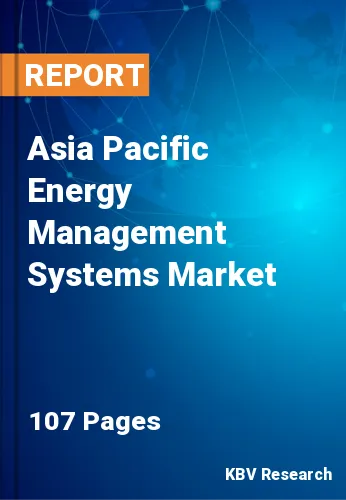The Asia Pacific Energy Management Systems Market would witness market growth of 16.4% CAGR during the forecast period (2022-2028).
Homes, industries, and businesses have been rapidly embracing energy management solutions as a result of government restrictions, cost savings, and optimizing their energy consumption. The main component of EMS measurement, software application, and communication aid in cost reduction. Buildings waste a significant amount of their energy, which may be saved with the assistance of EMS.
The growing emphasis on topics like energy management, optimizing the use of renewable energy sources, and lowering carbon footprint and greenhouse gas emissions are driving demand for EMS. Cloud services efficiently reduce software development and maintenance operational costs and direct monetary expenditures, time costs, and wasted resources toward sustaining in-house IT specialists and infrastructure for collecting, storing, and analyzing energy data. The cloud services trend is majorly driving the market growth.
Structural changes in the Vietnamese economy compelled the government to include a reduction in energy consumption per unit of GDP as one of the national Sustainable Development Strategy's economic targets for 2011-2020, as the country remained the most energy-consuming economy in East Asia, trailing only China, Thailand, Indonesia, Malaysia, and the Philippines. Moreover, various initiatives that are being taken by major market players across the region are also increasing the deployment of energy management systems. For instance, the Asian Development Bank approved a USD 250 million loans to EESL in November 2019 as part of an assistance package to help the company grow its energy efficiency initiatives in India. According to the Turkish energy and natural resources ministry, Turkey's public and private sectors have joined forces to invest over USD 10 billion in energy efficiency over the next ten years. Until 2033, the investment is estimated to create savings of USD 30 billion.
The China market dominated the Asia Pacific Energy Management Systems Market by Country in 2021, and would continue to be a dominant market till 2028; thereby, achieving a market value of $9.2 billion by 2028. The Japan market is estimated to grow at a CAGR of 15.7% during (2022 - 2028). Additionally, The India market would display a CAGR of 17.1% during (2022 - 2028).
Based on Component, the market is segmented into Solution and Services. Based on Type, the market is segmented into Industrial, Building, and Home. Based on Application, the market is segmented into Commercial and Residential. Based on End User, the market is segmented into Energy & Utilities, IT & Telecom, Manufacturing, Retail, Healthcare & Life Sciences, and Others. Based on countries, the market is segmented into China, Japan, India, South Korea, Singapore, Malaysia, and Rest of Asia Pacific.
Free Valuable Insights: The Worldwide Energy Management Systems Market is Projected to reach USD 107.1 Billion by 2028, at a CAGR of 15.6%
The market research report covers the analysis of key stake holders of the market. Key companies profiled in the report include General Electric (GE) Co., Siemens AG, Yokogawa Electric Corporation, Honeywell International, Inc., Schneider Electric SE, DEXMA Sensors, SL, Delta Electronics, Inc., Johnson Controls International PLC, C3.ai, Inc., and GridPoint, Inc.
By Component
By Type
By Application
By End User
By Country
Our team of dedicated experts can provide you with attractive expansion opportunities for your business.

